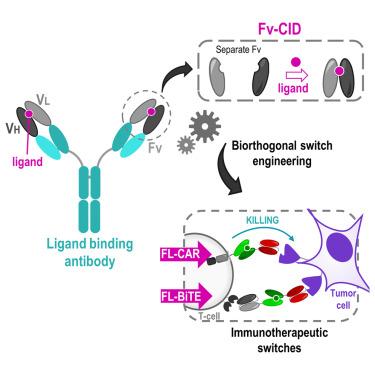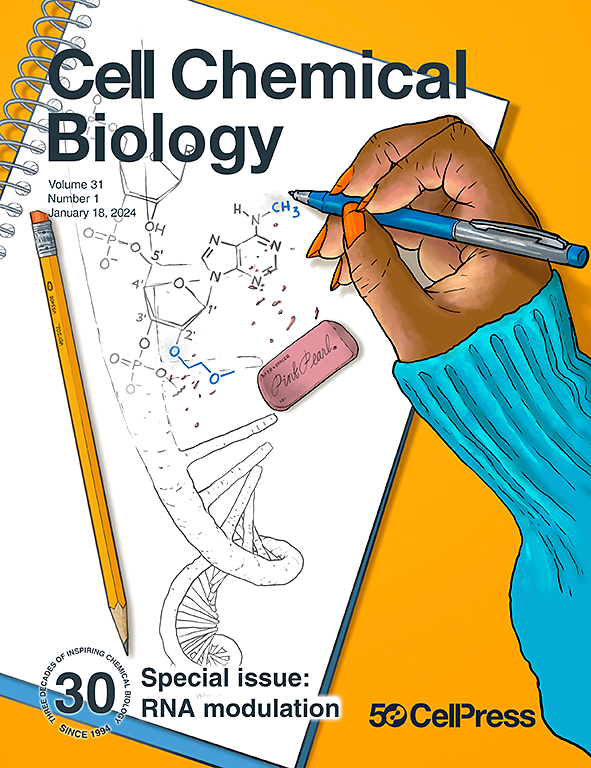Ligand-induced assembly of antibody variable fragments for the chemical regulation of biological processes
IF 7.2
1区 生物学
Q1 BIOCHEMISTRY & MOLECULAR BIOLOGY
引用次数: 0
Abstract
Precise control of biological processes by the application of small molecules can increase the safety and efficiency of therapies. Adverse side effects of small molecule signals and/or immunogenicity of regulatory domains hinder their biomedical utility. Here, we designed small molecule-responsive switches, based on the conditional reassembly of human antibody variable fragments, called Fv-CID switches. The principle was validated using high-affinity antibodies against nicotine and β-estradiol to construct chemically responsive transcription factors. Further, we developed an Fv-CID switch responsive to bio-inert, clinically approved compound fluorescein, which was used to control the activity of chimeric antigen receptor (CAR) T cells and bispecific T cell engagers (BiTEs) in vivo. This study provides a framework to regulate the expression of endogenous genes, combine multiple chemical signals, and regulate T cell-based immunotherapy in an animal cancer model using a clinically approved small molecule regulator that could be customized for regulating therapeutic proteins or cells.


配体诱导的抗体可变片段组装,用于生物过程的化学调节
通过应用小分子精确控制生物过程可以提高治疗的安全性和效率。小分子信号的副作用和/或调节结构域的免疫原性阻碍了它们在生物医学上的应用。在这里,我们设计了小分子响应开关,基于人抗体可变片段的条件重组,称为Fv-CID开关。利用高亲和力的尼古丁抗体和β-雌二醇抗体构建化学应答转录因子,验证了该原理。此外,我们开发了一种对生物惰性、临床批准的化合物荧光素有反应的Fv-CID开关,用于体内控制嵌合抗原受体(CAR) T细胞和双特异性T细胞参与器(BiTEs)的活性。本研究提供了一个框架来调节内源性基因的表达,结合多种化学信号,并在动物癌症模型中使用临床批准的小分子调节剂来调节基于T细胞的免疫治疗,该调节剂可以定制用于调节治疗蛋白或细胞。
本文章由计算机程序翻译,如有差异,请以英文原文为准。
求助全文
约1分钟内获得全文
求助全文
来源期刊

Cell Chemical Biology
Biochemistry, Genetics and Molecular Biology-Molecular Medicine
CiteScore
14.70
自引率
2.30%
发文量
143
期刊介绍:
Cell Chemical Biology, a Cell Press journal established in 1994 as Chemistry & Biology, focuses on publishing crucial advances in chemical biology research with broad appeal to our diverse community, spanning basic scientists to clinicians. Pioneering investigations at the chemistry-biology interface, the journal fosters collaboration between these disciplines. We encourage submissions providing significant conceptual advancements of broad interest across chemical, biological, clinical, and related fields. Particularly sought are articles utilizing chemical tools to perturb, visualize, and measure biological systems, offering unique insights into molecular mechanisms, disease biology, and therapeutics.
 求助内容:
求助内容: 应助结果提醒方式:
应助结果提醒方式:


